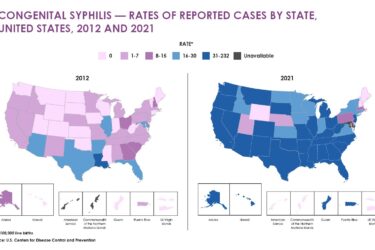
Social isolation and loneliness are associated with increased mortality in older adults. Social isolation also has been linked to other adverse health effects, including dementia, increased risk for hospital readmission and increased risk of falls. However, research consistently shows that feeling connected and involved benefits both mental and physical health.
Social isolation and loneliness are not quite the same things, although the terms sometimes are used interchangeably. Social isolation is an objective state, which occurs when a person lacks opportunities to interact with people. “Loneliness is the subjective experience of distress over not having enough social relationships or not enough contact with people,” according to experts at McMaster University in Toronto. A person can be socially isolated but not lonely; conversely, someone can be lonely even if they’re not socially isolated. Loneliness also may be mistaken for depression in older adults who have difficulties with losing a spouse, siblings or friends.
Almost half of older women (46 percent) age 75-plus live alone, according to 2014 data from the Administration on Aging in the U.S Department of Health and Human Services. Thirty-five percent of women over age 65 were widows. By the time people reach age 85, fully 40 percent live by themselves, according to this research paper for the Council on Contemporary Families. While living alone does not always mean social isolation, “deteriorating mental or physical health may limit a person’s ability to participate in social interactions outside the home,” according to the report’s authors. “Having no children, or living far away from them, especially increases the risk of social isolation.”
The AARP Foundation’s Connect2Affect has called social isolation a “growing health epidemic” among older adults. It equates the health risks of prolonged isolation with smoking 15 cigarettes daily.
A variety of factors can affect the ability of older adults to engage with the outside world:
- Mobility problems
- No longer can drive
- Live in rural areas
- Have limited transportation options
- Experience frailty
- Are retired
- Experience ageism
- Have a lack of opportunities to participate in the community
Tight budgets, especially for on fixed incomes, also may limit the use of car services, dining out, or attending events that could mitigate isolation. Social interaction can be particularly challenging for older adults who do not speak English well or are not better acculturated, wrote Ke “April” Xu in New America Media.
Social isolation is an issue that’s receiving more attention. As Gary Rotstein recently reported, staying socially active may help slow cognitive decline and improve happiness. Fortunately, many communities have, or are launching programs to address this issue. Laura Berrios reported on the problem for The Atlanta Journal-Constitution, which included a list of links and telephone numbers to organizations that can assist older residents. This centralMaine.com article, which encourages Augusta residents to get involved, was written by a retiree and volunteer who helps other older residents with transportation. This Pocono Record story highlighted the importance of looking out for seniors who may be hiding their loneliness or need for assistance.
However, perhaps the best advice comes from a 90-year-old Manchester, U.K., man who offered tips to his peers on combating loneliness. The Manchester City Council liked the advice so much that they produced a leaflet to share in their “age-friendly” outreach work.
Journalists: what efforts are taking place in your community to combat social isolation and loneliness among older adults? Some ideas to consider:
- Are there programs or organizations conducting outreach to this population?
- What about free or low-cost transportation? Volunteer companion services?
- Lyft and Uber have created “senior-friendly” options for ride sharing. What other choices are available in your city?







